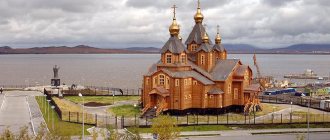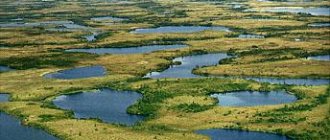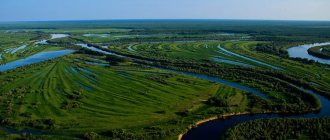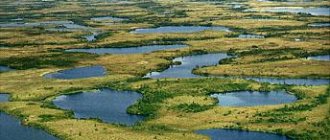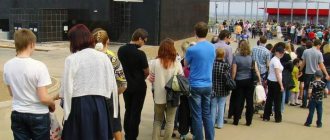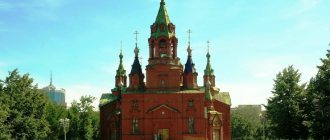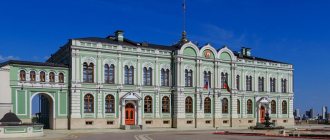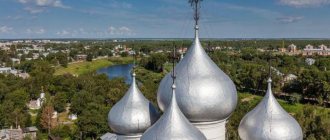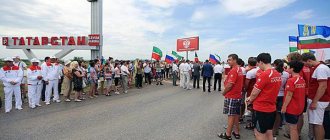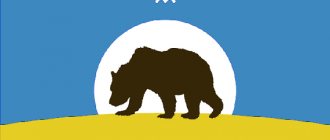What holiday is it today?
December 16, 2021, Thursday
Today are holidays, events: Events that happened on December 16 in the world, in different years Tomorrow: Day of Strategic Missile Forces Day of Employees of the State Courier Service Memorable date in the military history of Russia: Capture of the Ochakov fortress in 1788
Today is the Orthodox holiday of the Prophet Zephaniah. Reverend Savva of Storozhevsky, Zvenigorod. Martyr Angelis... Tomorrow: Great Martyr Barbara and Martyr Juliania of Iliopolis. Venerable John of Damascus...
Today is a national holiday: Day of World Silence and Silence... Tomorrow: Barbarian Day...
Seasons
Seasons, four periods of the year (spring, summer, autumn and winter) characterized by certain average temperatures. The period during which the Sun passes through one of these sectors is called the season. Spring in the Northern Hemisphere and autumn in the Southern Hemisphere begin when the Sun passes through the initial circle of declination and its right ascension is 0° (vernal equinox). Summer in the Northern Hemisphere and winter in the Southern Hemisphere occur when the sun's right ascension is 90° (summer solstice). Autumn in the Northern Hemisphere and spring in the Southern Hemisphere begin when the sun's right ascension is 180° (autumnal equinox). The beginning of winter in the Northern Hemisphere and summer in the Southern Hemisphere is considered to be the winter solstice, when the direct ascension of the Sun is 270°... Next: Seasons. Russian folk calendar. Monthly words...
see also
- Jewish Autonomous Region
- Symbols and landmarks of the Jewish Autonomous Region
- Cities of Russia
| [ + ] Cities by regions of Russia | |
| Cities of the North-West (NWFD) | St. Petersburg (and its cities) • Leningrad region (historical Staraya Ladoga) • Arkhangelsk region • Vologda region • Kaliningrad region • Karelia • Komi • Murmansk region • Nenets Autonomous Okrug • Pskov region |
| Cities of the Volga region (Volga Federal District) | Bashkortostan • Volgograd region • Kalmykia • Kirov region • Mari El • Mordovia • Nizhny Novgorod region • Orenburg region • Penza region • Perm region • Samara region • Saratov region • Tatarstan • Udmurtia • Ulyanovsk region • Chuvashia |
| Cities of Southern Russia (SFD) | Sevastopol (including Inkerman) • Republic of Crimea • Adygea • Astrakhan region • Krasnodar region • Rostov region |
| Cities of the North Caucasus (NCFD) | Dagestan • Ingushetia • Kabardino-Balkaria • Karachay-Cherkessia • North Ossetia - Alania • Stavropol Territory • Chechen Republic |
| Cities of the Urals (Ural Federal District) | Kurgan region • Sverdlovsk region • Tyumen region • Khanty-Mansi Autonomous Okrug - Yugra • Chelyabinsk region • Yamalo-Nenets Autonomous Okrug |
| Cities of Siberia (Siberian Federal District) | Altai Republic • Altai Territory • Irkutsk Region • Kemerovo Region • Krasnoyarsk Region • Novgorod Region • Novosibirsk Region • Omsk Region • Tomsk Region • Tyva • Khakassia |
| Cities of the Far East (FEFD) | Amur Region • Buryatia • Jewish Autonomous Region • Trans-Baikal Territory • Kamchatka Territory • Magadan Region • Primorsky Territory • Sakha (Yakutia) • Sakhalin Region • Khabarovsk Territory • Chukotka Autonomous Region |
| see also | Cities of the DPR, LPR, Transnistria, South Ossetia • Regions of Russia • Cities of Russia |
Folk calendar about every day
Every day one season always replaces another and this determines a person’s way of life. In connection with this, a folk calendar was formed in which there were practically no nameless, unmarked days. Every day was special, had its own purpose. All this was determined by climate conditions and astrological phenomena.
A calendar is a system for counting periods of time. The first calendars arose a long time ago, in ancient times, because there was a need to measure time. The word calendar comes from the Latin words caleo - to proclaim and calendarium - debt book. This is due to the fact that in Ancient Rome the beginning of each month was especially proclaimed, and because it was customary to pay debts on the first day of the month. Different peoples counted time differently. Some calendars are based on the changing phases of the moon - lunar calendars; in others - the change of seasons - sunny; in others, the length of the year was coordinated with the change of seasons, and the counting of months was associated with the phases of the Moon. Such calendars are called lunisolar.
In Rus', the calendar was called a monthly calendar. Every day, the month book covered the entire year of peasant life, “describing” day by day, month after month, where each day had its own holidays or weekdays, customs and superstitions, traditions and rituals, natural signs and phenomena. The cyclical nature of the calendar is reminiscent of human life, where spring is youth, summer is heyday, autumn is the time of harvesting fruits (it’s good if there are some, otherwise you can live your life without collecting fruits), winter is the time of wisdom and peace. This cyclicality and rhythm determined the way of life of the farmer. The folk calendar was an agricultural calendar, which was reflected in the names of the months, folk signs, rituals and customs. Even the determination of the timing and duration of the seasons is associated with real climatic conditions. Hence the discrepancy between the names of the months in different areas... Next: Folk calendar...
Geography and climate
The autonomy borders on the Amur Region, Khabarovsk Territory and China. The relief in the district is represented by two types:
- mountain ranges that occupy about 50% of the entire territory, the highest point is 1421 meters above sea level - Mount Studencheskaya;
- a plain representing the western outskirts of the Middle Amur Lowland.
The territory is washed by the Amur River for 584 kilometers. During the winter season, the river is covered with ice for about 5 months, in some places the thickness reaches 2 meters. However, this makes it possible to carry out passenger and cargo water transportation. There are other rivers in the district; the total water network is 8,231 thousand kilometers.
The area of the Jewish Autonomous Okrug is 36,000 square kilometers; 136.1 thousand hectares are suitable for arable land.
Favorable climatic conditions allow you to grow almost any crop:
- cereals;
- melons;
- pulses;
- vegetables;
- potato.
The Jewish Autonomous Region has developed livestock and poultry farming.
The climate in the district is temperate and monsoonal. In summer it is quite warm and there is a lot of precipitation, the temperature on average reaches +20 degrees, but in recent years it sometimes reaches even +40 degrees. The main problem that comes in summer is floods. In spring, due to floods and huge amounts of rain, many residential buildings are also drowned. In winter it is quite cold, the average temperature is –20 degrees.
There is beautiful nature here, magnificent taiga forests with a huge amount of mushrooms and berries. There is a lot of fish in the rivers, including sturgeon, carp and chum salmon.
Fishing calendar for every day
The fishing calendar should not be taken as an absolutely indisputable truth. Fish biting is greatly influenced by a whole range of natural factors, as well as the influence on the nature of man himself. You must not forget that the fish’s bite depends and is determined not only by the calendar dates and biological cycles of their life, reflected in the calendar, but also, no less, by the state of their habitat; the bite also depends on weather conditions: air and water temperatures, cloudiness, wind direction and strength, etc... Next: Fishing calendar...
Urban settlements
- Nikolaevka
Population 6,401 (2020).
- Smidovich
Population 4,255 (2020).
- Teploozersk
Population 3,548 (2020).
- Priamursky
Population 3,311 (2020).
- Bira
Population 2,611 (2020).
- Birakan
Population 1,781 (2020).
- Volochaevka-2
Population 1,654 (2020).
- Lime
Population 1,532 (2020).
- Kuldur
Population 1,318 (2020).
- Khingansk
Population 1,197 (2020).
- Londoko-factory
Population 865 people (2020).
Orthodox calendar about every day
Orthodox calendar: Orthodox, Church and Christian holidays.
The church year is an alternation of weekdays and holidays. On weekdays, a person is called to work “by the sweat of his brow to earn his bread.” Holidays are given in order to feel liberation, to rise above the bustle and routine of the world, to feel involved in the highest of worlds, “where there are no illnesses, sorrows and sighs, but endless life.” Since ancient times, holiday cycles have been associated with the seasons. The pagans associated them with the worship of the forces of nature, the cult of which in the Old Testament was replaced by gratitude to the Creator for the universe. And although the connection between holidays and the seasons has not completely lost its power, since God is present in everything, in the plant and animal world, in human works, it nevertheless faded into the background, giving way to a spiritual foundation built on the Sacred Scriptures. The history of Orthodox holidays dates back to the times of the Old Testament. Each of the Orthodox holidays is dedicated to the remembrance of the most important events in the life of Jesus Christ and the Mother of God, as well as the memory of saints... Next: Orthodox calendar...
Russian folk calendar for every day
The word “sign” comes from the word “notice”, i.e. observe. As a result of observing what happens around a person every day, he accumulates life experience. This knowledge was passed down from generation to generation, carefully preserved and people trusted it as a sacred book. Many signs have come to us from the depths of centuries without losing their knowledge. Each of us is free to choose: to dismiss all this as an absurd superstition or to take a closer look at the signs and take the centuries-old experience of generations more seriously. Most of us, when taking exams, ask them to scold them, boasting about some kind of good fortune or luck, spit so as not to jinx them or knock on wood, take a detour if a black cat crossed the road, are afraid of the number 13 and much more. And who among us does not have lucky things, numbers? Who has never resorted to the help of fate at least once in their life, who has not believed in secrets? It’s as if everything connected with signs is hidden somewhere deep in our subconscious. Often we remember them mechanically, unconsciously, or just as a joke. But, undoubtedly, the signs contain a lot of accurate knowledge and practical wisdom of our ancestors. They cover all the characteristic, often difficult to perceive, natural phenomena. Signs have preserved a lot of what was in old folk holidays and customs; they help predict the weather, grow crops... Next: Folk signs...
Population and language
Today, the Jewish Autonomous Okrug in Russia is a small region with a population of only 173 thousand people. Regarding the national composition, in fact, the Soviet “Promised Land” ceased to be such. According to the latest data from Rosstat, there are only 0.92% of Jews. The remaining residents are predominantly Russian (90.73%) and Ukrainians (2.76%). As in most regions of Russia, the female population is larger than the total population - 52.4%.
The birth and death rates in the region are almost at the same level, but the population is constantly declining. This trend has been observed since the 90s of the last century.
At the beginning of the formation of the district, the second language was Yiddish. In the 2000s, there was no interest in a second language; even the local institute stopped recruiting students to study this language.
The local newspaper Birobidzhan Stern, which was once published in Yiddish, is published in Russian. Only a few notes are published in Yiddish.
Holiday calendar, dates and events of the year
All state and professional holidays in Russia, including significant World and International holidays, and other equally interesting holidays and events about every day.
The holiday has always kept pace with the history of mankind. Social time can be divided into three types: everyday life (weekdays), weekends and holidays. Everyday life is a series of practices repeated day after day and every day (work). Weekends are regular breaks from the rush of everyday life. It is believed that on weekends a person should restore his strength after working days. Day off, non-working day. A holiday is a day of celebration established in honor or in memory of someone or something. A day or series of days celebrated by the church in memory of a religious event or saint... Next: Calendar...
Historical reference
The history of the Jewish Autonomous Okrug begins in 1917. At that time, the question of developing the Far East was raised. And in the 20s, there was the issue of employment of Jews and determining their place of residence on the territory of the USSR. After all, even in the Russian Empire they were not allowed into cultural and industrial centers for settlement; the ethnic group was located in the Caucasus, Siberia and Central Asia. With the advent of Soviet power, the Bolsheviks believe that they are simply obliged to protect the ethnic minority. Therefore, the Jews were for the revolutionary movement and believed that they were moving towards freedom.
And indeed, the first Soviet government had many Jews in its ranks: Trotsky, Kamenev and Zinoviev. But it didn't last long. In the 1920s, the country had a terrible economic situation and unemployment. And now again the ethnic minority is looked upon as petty-bourgeois elements. As a result, Jews who have businesses close them and move inland from large cities. And the authorities see the solution to the problem in introducing these people to agriculture. However, the Civil War comes, and plans to attract Jews to agriculture do not come to fruition. After the end of the war, gradual resettlement to Crimea and Ukraine continues, but in fact the project remains a fiasco. Moreover, the peasants were quite hostile towards the settlers. As a result, the authorities are looking for an alternative to the failed project. In this way, it is possible to find new lands that are sufficiently remote from other populated areas, and this was the territory where the modern capital of the Jewish Autonomous Okrug is now located.
At that time, the region was inhabited by Tungus, Cossacks and Koreans. The total population was 1192 people. The Soviet government counted on financial support from Jewish societies in other countries. Jews also came here with great hopes for a bright future. But upon arrival, virtually all hopes were dashed and enthusiasm disappeared. They have to live in shacks, women are engaged in prostitution, in general the picture is depressing. Every year the unpopularity of the Jewish Autonomous Region only increases, especially when the territories become part of the Gulag. However, the authorities do not admit their defeat and present the project to the whole world as a success. The number of Jews is declining, and in fact the project is collapsing after Stalin's purges.
Today the situation in the Jewish Autonomous Okrug is quite complex. Industrial enterprises are barely breathing, young people are leaving.
Prayer book, Orthodox prayers for every day
Prayer is the most powerful means for healing all illnesses - both physical and mental. Prayers can be laudatory or grateful, petitionary and repentant. If we have offended God, sinned, we must ask Him for forgiveness, that is, repent. Such prayers are called repentant prayers. If everything is fine with us, if we and our loved ones are healthy and prosperous, if we have a place to live, something to wear, something to eat, we must glorify and thank God for this. Such prayers are called praise or thanksgiving. If some misfortune, illness, trouble or need happens, you need to ask God for help. Such prayers are called petitionary... Next: Orthodox prayers...
Zodiac, astrological, eastern calendar. Zodiac signs
In ancient times, to establish the calendar, priests used knowledge of the positions of all the planets. Before the reform of Peter 1, the New Year was celebrated on the Day of the Autumn Equinox. On this day, according to ancient legend, the most peaceful treaty was concluded between the Great Race (ancient Slavs) and the Great Dragon (ancient Chinese) and it was approximately 7518 years ago... For the ancient Slavs, the calendar month corresponded to the lunar cycle from new moon to new moon, taking into account such Thus, the relationship of the entire annual cycle with astronomical and natural phenomena. There was no coherent calendar system. The main natural phenomena are still considered to this day to be the days of the solar equinox and solstice - the Slavic holidays Maslenitsa, Kupala, Ovsen and Kolyada. But during the time of Peter 1, all ancient Slavic calendars were abolished and a new Western European calendar from the Nativity of Christ (Julian calendar) was introduced, while the beginning of the calendar was moved to January 1. The Julian calendar (old style) did not take leap days into account and accumulated one extra day every 128 years. After the October Revolution in 1918, the Gregorian calendar (new style) was introduced in Russia, according to which an amendment of 13 days was introduced. The calendar of the ancient Slavs was based on two planets: the Sun and the Moon. And now they don’t use anything at all. The calendar has become static. There is no such thing as the calendar, it turns out, resting on some planet. Nobody even knows about it. There are just some standard numbers, there are months and holidays. The calendar is based on the Sun and Moon. Why is this so? Because these two luminaries influence the Earth. The Earth revolves around the Sun, and the Moon revolves around the Earth. And these two luminaries create the atmosphere on the planet. From here the calendar is built... Next: Astrological calendar...
Cities of the Jewish Autonomous Region
Birobidzhan
- this city with a population of 75 thousand stands on the banks of the Bira River. In Soviet times, thanks to help from the center, it was still possible to live here. Now everything has become much more complicated. There are no prospects here, and those who are quicker and more purposeful are in a hurry to leave for other cities. Among the advantages, it is worth noting the ecology, greenery in the city, low prices. Despite them, there are practically no people willing to move to Birobidzhan, except that those who participate in government programs for migrants go to this city to receive government “lifting allowances.”
Dream books online, interpretation of dreams
A dream book is nothing more than an interpreter of dreams and dreams, a translator of dreams. Since ancient times, people have been using dream books; dreams have always been given great importance, and people have often noticed the prophetic properties of some dreams. The dream book can become your faithful assistant every day and throughout your life, thanks to the dream interpreter you can always make the right decisions, the dream book will help you resist temptations in time, and will warn you against wrong steps and frivolous actions. Further…
